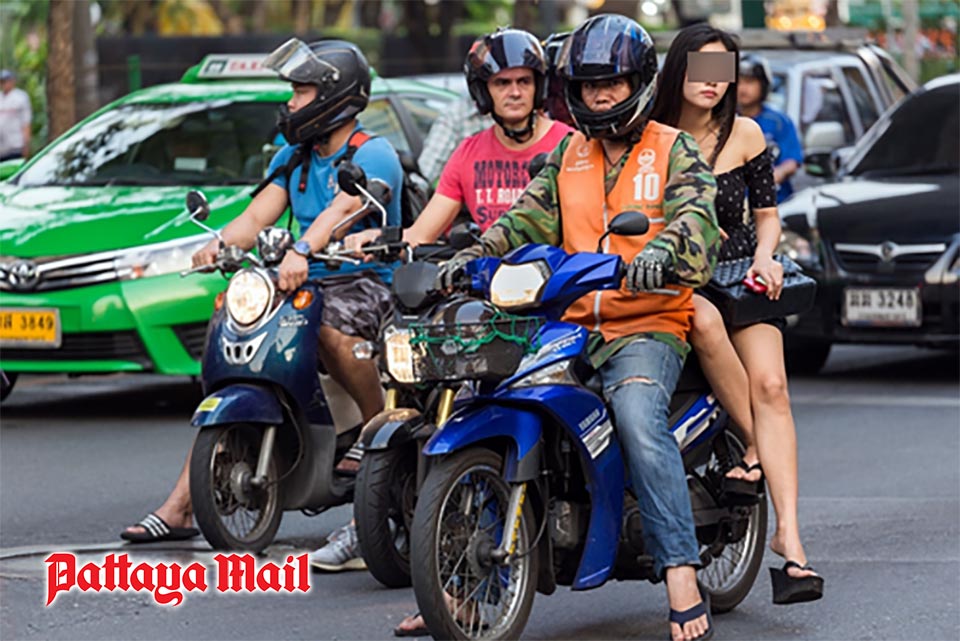Foreigners face strict helmet fines, locals get warnings — Pattaya visitors surprised by unequal enforcement
Foreign riders question if locals truly pay fines or just get warnings, while experts warn reckless driving poses a bigger danger and stress education for all.
PATTAYA, Thailand – A growing number of foreign residents and visitors in Pattaya are speaking out against what they perceive as unfair enforcement of Thailand’s helmet laws. Under the new regulations, helmet violations now carry hefty fines of up to 2,000 baht. While foreigners often face these steep penalties, many say local riders—especially Thai nationals—frequently receive mere warnings, fueling frustrations over double standards and “dual pricing” on the streets.
Pattaya police have recently ramped up enforcement to reduce the high rate of motorcycle deaths, a major cause of concern nationwide. Foreign riders report encountering hefty fines for helmet violations, part of a national effort to improve road safety.
“Foreign riders beware — Pattaya police enforce hefty fines for helmet violations,” warned one expat community bulletin.
However, several foreign residents say they rarely see the same strictness applied to local Thai riders.
“Do Thais get a pass?” asked one online commenter. “Not from what I’ve seen of it, but I don’t know if they get fines or just warnings.”
Many suspect locals are often let off with warnings or informal fines, while foreigners must pay official penalties. This perceived “dual pricing” adds to feelings of discrimination.
Education and Support for Locals: A Missing Link?
Critics argue that the solution is not simply more fines but better education and helmet accessibility—especially for poorer Thai riders.
“Fine the farangs— good for them,” said one long-term visitor. “But locals need education and helmets. They should be handing out free helmets to locals— especially those who are poor.”
Expats call for fair, consistent helmet law enforcement in Pattaya, urging free helmets and road safety education for locals to save more lives.
Another agreed:
“Exactly what we do: education and certified free helmets.”
The argument is that enforcement without support leaves vulnerable riders at risk and fails to address the root causes of accidents.
Some also point out that the biggest danger on Pattaya’s roads isn’t helmet violations but the reckless behavior of some Thai drivers, including driving on the wrong side of the road.
“The biggest danger is Thais driving on the wrong side,” one expat wrote. “Again — education.”
Many agree that improving driver awareness and road discipline would do more to reduce accidents than simply fining helmet offenders.
The controversy shines a light on a broader issue in Pattaya and across Thailand: how to fairly and effectively enforce road safety laws without alienating or unfairly targeting foreigners.
“Thais have no money to pay. So only farangs will pay,” said one frustrated commenter.
For a city that thrives on tourism and foreign residents, this disparity risks undermining goodwill.
Many locals and foreigners alike hope for a more balanced approach—one that combines education, support for low-income riders, and consistent enforcement across all communities.
Pattaya’s officials face the challenge of maintaining road safety without fostering resentment or injustice. Providing free or subsidized helmets to local riders, running public education campaigns, and ensuring consistent enforcement regardless of nationality could build safer streets—and a fairer Pattaya.
As helmet laws tighten and fines increase, the city must avoid turning enforcement into a source of division between foreigners and locals.



